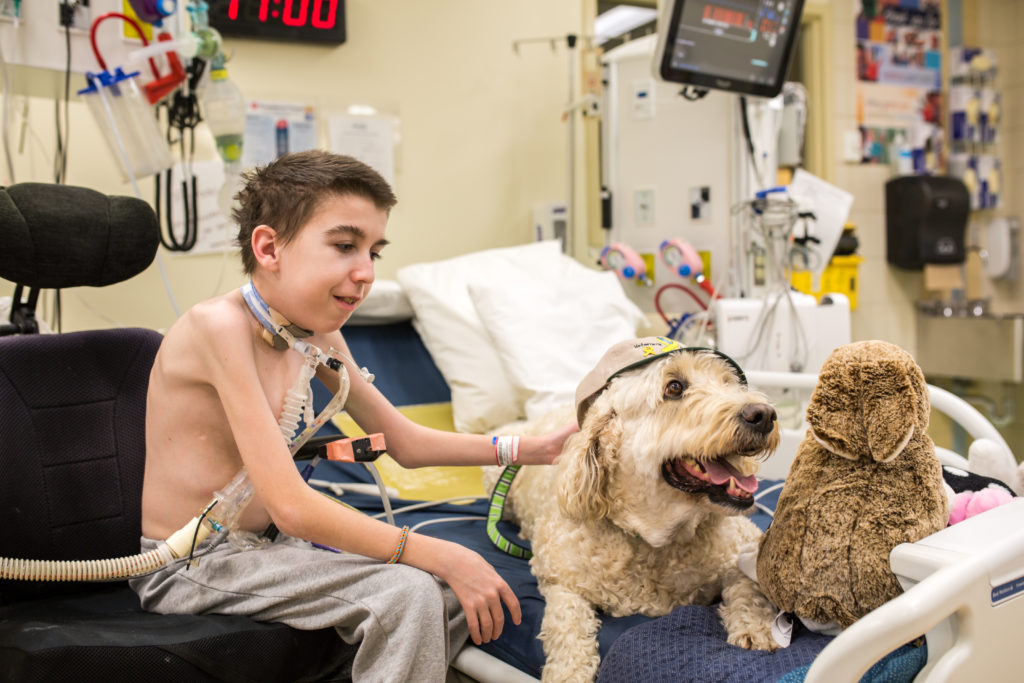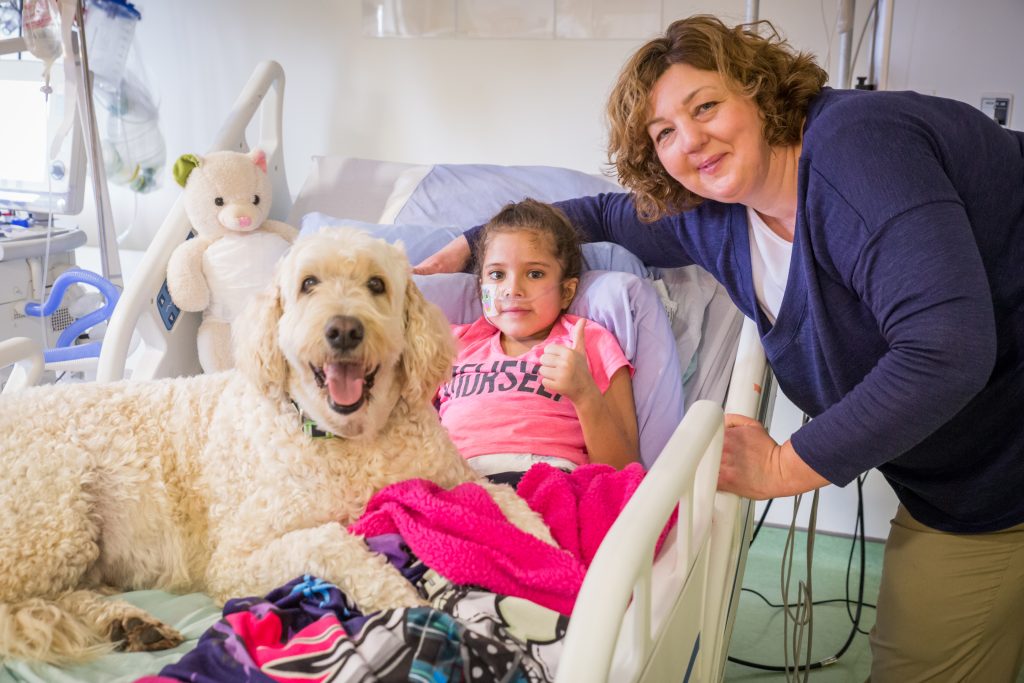
HHS introduces Canada’s first PICU therapy dog
The Pediatric Intensive Care Unit at McMaster Children’s Hospital has a new part time resident. His name is Lukus and he’s a 10-year old golden doodle. He’s also the main attraction of Canada’s first PICU pet therapy program.
A few years ago, when a terminally ill patient’s family asked PICU staff to facilitate a visit with their beloved dog, they started to think about the potential impact of animal companionship on other patients, family and staff. From there, medical director, Dr. Cynthia Cupido, and clinical manager, Mags Purcha, applied for approval from risk management and infection control to begin a pet therapy program for critically ill patients in the PICU. When registered nurse, Shelley Farrell, offered her hypoallergenic, therapy certified pooch as an ambassador, the deal was sealed.

Tanika Jacobs and nurse, Shelley Farrell, share a cuddle with Lukus
Farrell brings Lukus to the PICU once a month to visit with patients and their families. He has been both incredibly soothing and motivating for patients. One young girl who’d had back surgery was reluctant to sit up in bed but when Lukus arrived, she perked up and even took him for a walk around the unit.
it doesn’t matter what’s going on and how busy it is. He’s having a hugely positive impact
Purcha says his effect on staff and patients is palpable, “you can actually feel it when Lukus comes to visit … it doesn’t matter what’s going on and how busy it is. He’s having a hugely positive impact.”
That impact is being studied by Cupido who collects surveys from patients, families ands staff after each visit. She says “There’s lots of information about the benefits of therapy dogs in particular in various health care settings, whether that be in outpatient clinics, emergency rooms or in mental health clinics. We know that therapy dogs can decrease anxiety and fear that patients may feel, and can even improve vital signs of patients. And we want to see if the same thing is true in the pediatric intensive care unit.”
Cupido and Purcha hope their research will prove the benefits of a therapy dog program in a pediatric intensive care setting and encourage other hospitals to follow their lead. For now, they’re just happy to see the smiles Lukus brings to patients, families and staff.
